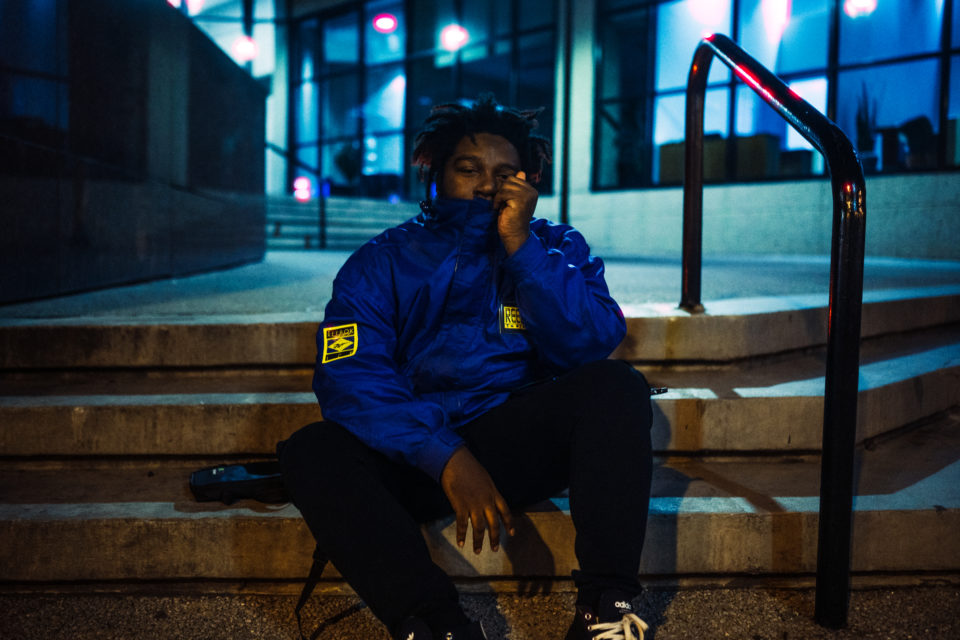Namir Blade made a grand declaration in his living room studio, days after the release of his new album Metropolis: “I feel like I have it down to a science now.”
He wasn’t referring to the machinery of the career he’s building in independent hip-hop — he was talking about a kind of artistic self-actualization. At the heart of his third full-length for Mellow Music, preceded by other self-released projects under various monikers, is the harmonizing, integrating and reconciling of his seemingly disparate sensibilities. Leaning into his maximalist tendencies made room for the array of ideas, experiences and allegiances that he used to compartmentalize. “It collaborates with every single element that made me who I am,” Blade explains, “from my environment to the things that I consume, like media, anime, video games, all of that, and me being a musician.” A classically trained pianist and cellist, at that.
Blade’s 2020 solo album, Aphelion’s Traveling Circus, introduced a conceptual hip-hop artist, breezily exploring Afrofuturism, confessionalism and craft. His collaboration with the producer L’Orange, Imaginary Everything, was a chance to prove what a nimble writer and performer he is, someone who can calibrate his style and tone and spit over any adventurous beat that’s sent his way.
On this new 16-track set, named for a historic dystopian film and a Japanese anime, Blade breezily showcases what he can do as a technician and an astute student of recognizable flows and regional sounds, as he spins tales of imaginative survival inside oppressive systems. When he wants the music to feel more open-ended, he switches the beat mid-track, or veers toward the expansiveness of a film soundtrack. He describes it as “a charcuterie board of what is possible and what I could do.”
No longer does Blade come off as the misunderstood kid, the lone anime nerd on his block, the arty rapper among swaggering contemporaries. No longer does he present himself as any sort of free-floating entity either, as though he is untethered from his hometown music scene. He prizes his individuality while also nodding to kinship and connection and mutual respect, and paying plenty of homage (to the chopped-and-screwed style of Big Pokey, to the exacting narration of Kendrick Lamar, to the tough affect of Jadakiss; Blade can reel off a zillion more reference points, a taxonomy of inspiration organized by era and scene, including plenty of southern flavors from right in his region).
In tracks like “Mephisto,” “Guts vs Griffin” and “Cruisin USA” he inscribes fantasy and reality alike with colorful detail, painting pictures of the musical and economic prospects available, and unavailable, to him and other longtime Black residents of this gentrifying city. To those who, Blade realizes, haven’t seen much of a way forward, he insists on the ethic and insight he’s absorbed from binging decades of sci-fi movies: “Nah, we will be in the future.”

